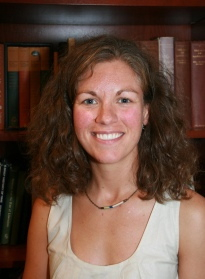
Looking back, but really looking forward
A week into the spring semester, the fall term seems like it was forever ago! In my last post, I talked about the informal evaluations my students took, and since writing that post, I have thought about some of the suggestions they made. Looking back at the semester, I see a couple of changes I will make when I teach this class again.
For one, I plan to forefront the methodology. In retrospect, I am not sure that students understood that I constructed the course with a research project in mind. The course arc was a research plan: Learn the basics (What is a snake?), investigate the context (How did Mesoamericans describe snakes?), and then explore the animal’s religious symbolism (What is the significance of Quetzalcoatl, “Plumed Serpent,” in Mesoamerican religions?). Students writing research papers or MA theses could explore their own questions using a similar process. I think it could be worth taking time periodically to reiterate how the class is a research project so that students see how their learning is cumulative rather than (only) discrete.
Secondly, I will (again) stress the importance of keeping up with the reading, and I plan to integrate more examples of working with key passages and critical terms as we go. A few students reported in the evaluations that they wished they had known the final reflection assignment from Day One. Had they known, they said, they would have read more carefully and taken better notes. (Hmm . . .) While I do not see myself handing out the final assignment in the first week, I am not opposed to incorporating more scaffolded exercises that will help them prepare for it.
Lastly, I may share some of the suggestions the first class made with my future students. I will likely share the ideas I will probably reject. For example, some students said they would rather have formed their own podcast groups. Others wished the podcast groups had been mixed with undergraduate and graduate students. Still others wanted to switch groups mid-term. I have good reasons for politely declining these suggestions. Sharing them with the next class and explaining my reasoning may make why I do what I do clearer to my students.
That said, I am sure that more ideas about how to make the course better will occur to me between now and the next time I teach it. What are some of the best improvements you’ve made to the courses you teach? (Please share in the comments!)
And what’s next for you?
For me? More adventures in teaching! I’m working with a group of faculty in my college to think through what digital learning in graduate education might look like at our institution. I never thought I would teach an online course, but it may be happening next year.
I hope the new year brings you great students and lots of enjoyable and meaningful classes. Thanks for reading!